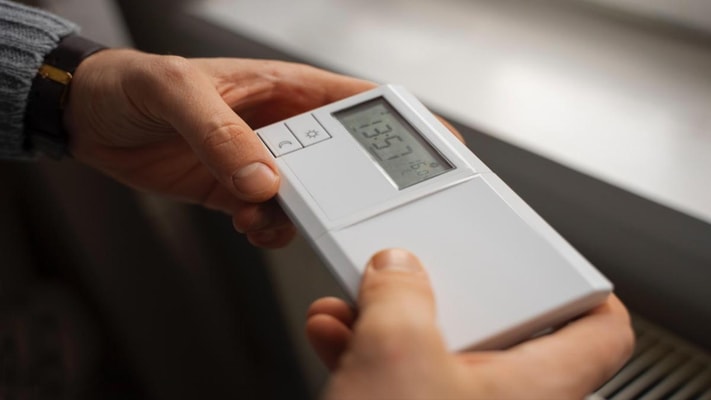Heat pumps: subsidy reduction won’t stall demand

19 FEB, 2024
By Christian Rom

Commentary by Christian Rom, Portfolio Manager at DNB Fund Renewable Energy
Heat pumps have a CO2 savings potential of 500 million tons by 2030, equivalent to the annual emissions of all cars in Europe.
The global expansion of renewable capacity will continue to grow over time, enabling the generation of clean electricity. Cheap and environmentally friendly electricity can be used to replace technologies or processes currently reliant on fossil fuels. This will increase energy efficiency while reducing energy demand and, consequently, emissions.
The IEA's "Net Zero Emissions by 2050" scenario estimates that most of the emissions reduction from electrification will come from e-mobility and the deployment of heat pumps. Current models are between three and five times more efficient than gas boilers. The IEA calculates that heat pumps have the potential to reduce global CO2 emissions by at least 500 million tons by 2030, equivalent to the annual CO2 emissions from all cars currently on the roads in Europe.
Heat pumps are now considered a good way to reduce emissions: solutions are already available, can be implemented quickly, have relatively low initial costs, and a short payback period. Currently, they represent around 10% of global heating demand in buildings, and their sales have grown at a double-digit rate in recent years due to increasing political support and decarbonization efforts.
NIBE Industrier: Well-Positioned in Germany, the US, and Scandinavia
NIBE Industrier is one of the leading global providers of systems and components for climate control solutions, including heat pumps (approximately 40% of sales). Political support in the form of subsidies for heat pump installations through REPower EU and the EU Heat Exchanger Act explain the strong growth in recent years. Due to concerns about a decrease in subsidies at the national level, the company had to accept a reassessment this year.
Subsidy amounts were reduced in Italy and Germany, and in Germany, subsidy applications for heat pumps were even cut by 50% in the first half of 2023. This has raised concerns in the market about weakening demand. However, we expect strong government support for energy-efficient indoor climate comfort to support double-digit organic growth over the next decade. We believe concerns about the future availability and reliability of natural gas supply to European countries will be a key factor in maintaining regulatory support. Additionally, the company has a strong corporate culture (decentralized structure) and a proven acquisition program.
Nibe enjoys a strong position in key markets such as Germany, the Nordic countries, and the United States. Its strength in the US market has been built through several acquisitions made between five and ten years ago and offers an interesting exposure to a market that is still not sufficiently penetrated and will benefit from subsidies proposed by the IRA for heat pumps.
Related articles
 Granolas Stocks: what they are and differences with the Magnificent 7
Granolas Stocks: what they are and differences with the Magnificent 7By RankiaPro Europe

